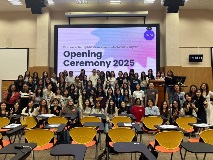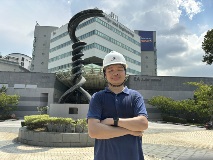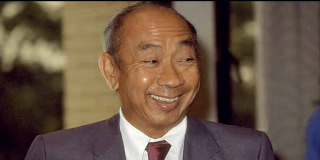Bringing our partners and friends one step closer to understanding the process that transforms generosity to impact
Running for its fifth year, the much awaited Benefactor Campus Experience was held on 22 August 2020 for the benefactors of the National University of Singapore (NUS). The scaled down half-day event this year featured Classroom Experiences showcasing four distinguished speakers. With this experience, we hope to bring our partners and friends, one step closer to understanding the inner workings and complexity of the process that transforms generosity to impact. We thank all who attended.
Wearables and the Future of Healthcare
NUSS Professor
Department of Biomedical Engineering
Director, Health Innovation and Technology (iHealthtech)
Founding Principal Investigator, Mechanobiology Institute
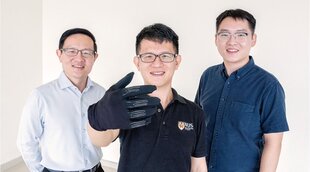
A pioneer in advancing health through innovation, Prof Lim Chwee Teck has been paving the way in making a future where technologies can vastly improve healthspan and longevity, diagnose disease early, and enable precision therapy.
Prof Lim shared some insights on ongoing research, “There is an upward trend in wearables that monitor health and well-being on a continuous basis. With our expertise in sensing technology, we started looking into how some of our wearable sensors can be translated for use by patients with conditions such as Parkinson’s Disease and diabetes.”
Prof Lim is also behind Epidax, a portable micro-PCR diagnostic system, that enables rapid and accurate on-site screening of COVID-19 and can significantly reduce the time required for diagnosis down to 30 minutes.
“Research outcomes must be brought from bench to bedside so as to benefit the patients and society. It is therefore very important that we work with commercial partners to incubate some of these technologies that we have developed in our laboratory,” Prof Lim highlighted.
From smart gloves that can assist rehabilitation through accurate motion tracking, to smart mirrors and toothbrushes that can detect health conditions, we look forward to what the future of medtech brings.
The Promises and Pitfalls of Conservation Technology
Professor Koh Lian Pin
Director, NUS Centre for Nature-based Climate Solutions
Professor of Conservation Science, Technology and Policy
Returning Singaporean Scientist
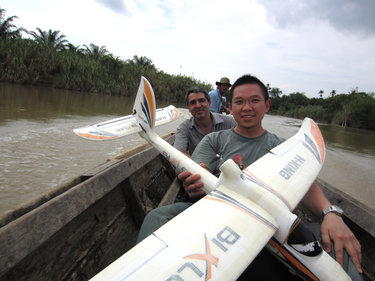
Prof Koh conducting field tests in North Sumatra.
Technology is changing how we investigate and protect nature and wildlife, especially by lowering and removing barriers for research and practice. There has been growing interest in the innovative use of mobile apps, machine learning and drones for biodiversity mapping and monitoring in recent years.
A prominent researcher in the field of sustainability and environmental science, Prof Koh has found that drones can play an effective role in the enforcement of protected areas, mapping and monitoring of habitats, and surveying wildlife. Challenges to bear in mind include using drones for the appropriate purpose, adapting to local conditions, and overcoming potential barriers in local communities.
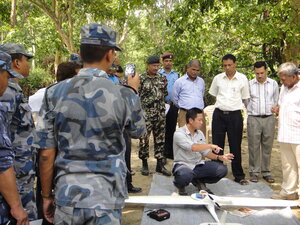
Prof Koh sharing knowledge with locals.
“In the early years, it was near impossible to fund our work in conservation drones as it was not regarded as serious research. Thankfully, foundations and philanthropies stepped in to support unconventional ideas that may be slightly ahead of their time, and become catalysts for highly innovative solutions. These partnerships are so important in helping us achieve our goals and to realise the potential of conservation drones and conservation technology in general,” related Prof Koh.
Returning to Singapore to set up the NUS Centre for Nature-based Climate Solutions, Prof Koh also continues to press on towards a common vision of developing innovative and yet practical solutions to address climate change.
Singapore’s Identity in the Light of Recent Archaeological Discoveries
Emeritus Professor John N Miksic
Department of Southeast Asian Studies, Faculty of Arts and Social Sciences
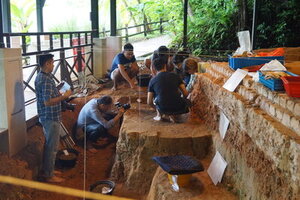
Archaeological Dig Exhibition at Fort Canning Park showcased as part of the Singapore Bicentennial 2019.
In 1965, Singaporeans considered themselves as a people without any historical identity. Singapore’s founders thought the island city had been created by the British and developed by 19th-century immigrants from a wide swathe of Asia.
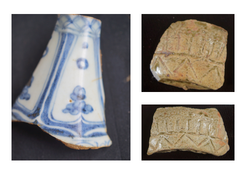
Artefacts found at the archaeological dig exhibition site at Fort Canning include Chinese and Thai artefacts from the 14th and 15th centuries.
Considered one of the foremost experts on Singapore’s enigmatic history, Prof John N Miksic lamented: “It was an uphill task getting people interested in my topic for the last 30 years and to believe that Singapore existed before Sir Stamford Raffles came.”
Resurgence of interest in pre-Raffles Singapore grew when excavations in Fort Canning and other areas orchestrated by Prof Miksic uncovered more than half a million artefacts documenting the fact that Singapore was an important cosmopolitan, multi-ethnic trading centre 700 years earlier.
As the plethora of valuable evidence uncovered has given us a profound insight into the past, Prof Miksic’s good work will continue to allow more Singaporeans to be able to gain a deeper understanding of their heritage.
Professor Dean Ho
Provost’s Chair Professor, Department of Biomedical Engineering
Director, N.1 Institute for Health
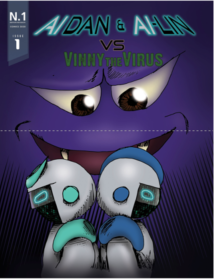
The AIDAN & AI-LIN vs Vinny the Virus is a comic on research work led by Prof Ho, leveraging artificial intelligence (AI) in the fight against the virus.
“Technology alone cannot transform healthcare. It takes so much more, such as healthcare economics, behavioural sciences and policy advances,” Prof Ho revealed, as he shared the complexity of using Artificial Intelligence to enable practice-changing healthcare in terms of digitising drug selection and dosage for maximum efficacy, and innovating therapy and healthcare for the long-term benefit of the Singapore society and beyond.
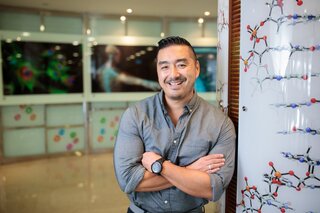
Prof Dean Ho

